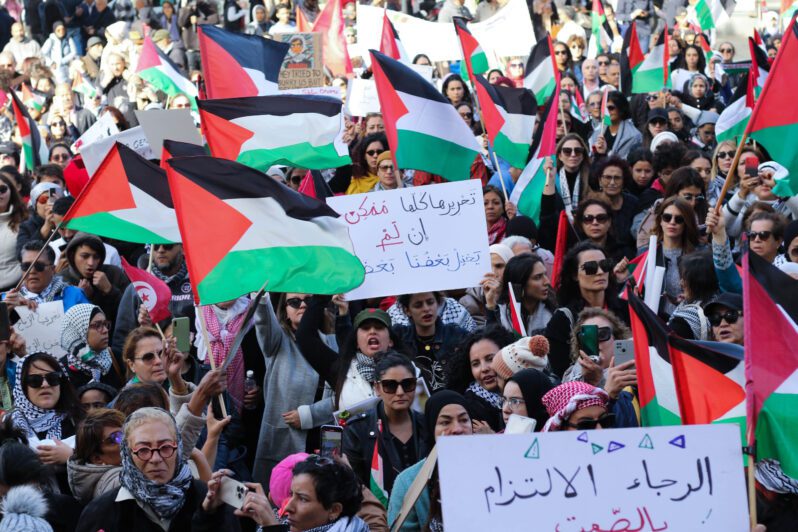Main Arab Legal Events: The Legal Agenda’s Perspective Weekly Note no 25 (18-25 February 2013)

Judicial Authorities in Tunisia Denounce the New Comers
The Draft Law for the Establishment of a Temporary Committee to Supervise the Judiciary is to be Submitted to the Constituent Assembly in Mid-March
Armed Forces are once again granted Judicial Police Prerogatives in Egypt
Security Forces Attack Judges in Libya and Yemen…And the Judicial Authorities Condemn
Political Prisoners in Oman Suspend their Hunger Strike, and the Higher Court Pledges to look into their cases amid condemnation by International Rights Organizations
1- Tunisia:
-Once again, judicial authorities including the Syndicate of Tunisian Magistrates and the Judges’ Association unanimously agree on denouncing a lawyer’s statements on the assassination of the lawyer Chocri Belaid, where the former accused a Tunisian political party of the crime. He furthermore stated that he does not trust in the examining judge and even questions his impartiality and the Tunisian Judiciary’s ability to uncover the crime’s circumstances.
-Following the Judges’ Association protests translated into delaying by one hour the start of the hearings, and carrying on wearing the red badge, the National Constituent Council pledged to submit the draft law on the establishment of a Judicial temporary committee to deliberations before mid-March. On the other hand, the Judges’ Association alluded to a general strike in case the issue is not settled within the deadline.
2- Egypt:
-The Shura Council adopted law number 1/2013 granting judicial police prerogatives to armed forces officers, thus reviving tragic memories of previous states of emergency.
-The debate resurged over the General Prosecutor crisis, after the Judges’ Club’s extraordinary General Assembly granted the General Prosecutor Talaat Abdullah one week to submit his resignation. The Assembly called upon the Higher Council of Judges to prevent Abdullah from holding any hearings and alluded to an escalation in the event of failure to resolve the crisis within the time limit. On another note, young judges and members of the General Prosecution asked the General Prosecutor to conduct a poll to explore the Prosecution members’ opinion on him remaining in office. Conversely, in the wake of the General Assembly, the “Judges for Egypt’s Movement” issued a statement deploring what it described as “a meeting of prejudice” against leading judicial figures such as “Talaat Abdullah”.
3- Yemen:
-The Higher Court adjourned the case on the unconstitutionality of some of the Judiciary’s articles filed by Judges for Independence. A judge (named Abdul Wahhab Katran who had published some of the articles in the legal agenda) asked to join the plaintiffs. The Court decided to adjourn the hearing to March 6 to allow the defense attorney of the State’s officials to respond.
4- Libya and Yemen:
-The Judicial Forum issued a statement denouncing Yemen’s Central Security soldiers’ attack of a judge. The latter was heading to work when a soldier fired in the air, searched his car and held him for a while. In parallel, the Libyan Judges’ Organization issued a statement condemning the attack of a General Prosecution’s member in Benghazi and his detention for 5 days.
Beyond the Weekly Note:
Sultanate of Oman:
-Following the Higher Court’s promises to look into the appeals brought before it, political prisoners suspended their hunger strike which lasted for 15 days and was a sign of protest against the legal verdicts delivered in their cases. It should be noted that Amnesty International and Human Rights Watch had both issued statements calling upon the Omani authorities to immediately release the prisoners and abolish all verdicts convicting them. The Legal Agenda had itself devoted its latest edition to the prisoners of conscience’s case in Oman.
Saudi Arabia:
-The Criminal Court in Jeddah declared itself incompetent to rule on charges against the Saudi activist “Raef Badawi”, founder of the “Free Liberal Network”. The Arab Network for Human Rights Information called for his immediate release until determination of the competent judicial authority.
Prepared by Christelle El-Feghaly



